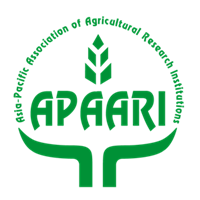Evaluation as a multi-stakeholder learning process : the Programme for Capacity and Theory Building for Universities and Research Centres in Endogenous Development (CAPTURED ) in Bolivia , Ghana and India
An evaluation is a particular multi-stakeholder event during which different actors share and analyse results after several years. If the evaluation has a strong formative purpose, the evaluation team is requested to facilitate a learning process involving all key actors. Evaluations that emphasise deeper learning have to be designed in such a way that different perspectives emerge and are appreciated in an interactive way. The present article reviews the results and methodological design of an evaluation at higher education centres in Bolivia, Ghana and India. The ambition of these programmes was to integrate endogenous knowledge and values into education and research programmes. The evaluation provides an example of a mixed methods design that allowed for inclusion and appreciation of perspectives of different stakeholders. An evaluation team has to consider which set of methods is responding to the project context and how the methods complement each other and can be adapted to the case. The design should deliver both quantitative as well as qualitative data that provide evidence about results as well as the stories and background what these results mean for different stakeholders.
Related Resources

Unravelling institutional determinants affecting change in agriculture in West Africa
This paper compares lessons learned from nine studies that explored institutional determinants of innovation towards sustainable intensification of West African agriculture. The studies investigated issues relating to crop, animal, and resources management in Benin, Ghana, and Mali
Science and Technology in Civil Society Innovation Trajectory of Spirulina Algal Technology
The role of civil society in influencing public opinion towards more democratic and developmental approaches is now well-recognised in diverse fields such as health, education, livelihoods, issues relating to disadvantaged social groups and the environment. Yet, science and technology in...
I used to be ashamed. The influence of an educational program on tribal and non-tribal childrens knowledge and valuation of wild food plants
This study examines the influence of an extra-curricular educational program on children's knowledge and cultural valuation of wild food plants, which are an important component of their diets. This program aims to reinforce children's traditional knowledge and values around biological...
Similarities Among FARA-Led IAR4D Innovation Platforms
Multi-stakeholder partnerships network which is typified by the FARA-led Integrated Agriculture Research for Development (IAR4D) of the SSA-Challenge Program is an innovation platform (IP) composed of stakeholders bound together by their individual interests in a shared commodity or outcome. The...

Report on Prioritization of Demand-driven Agricultural Research for Development in Bangladesh
The International Food Policy Research Institute (IFPRI) partnered with the Asia-Pacific Association of Agricultural Research Institutions (APAARI) in 2011 to conduct a series of policy dialogues on the prioritization of demand-driven agricultural research for development in South Asia. Dialogues were conducted with...


